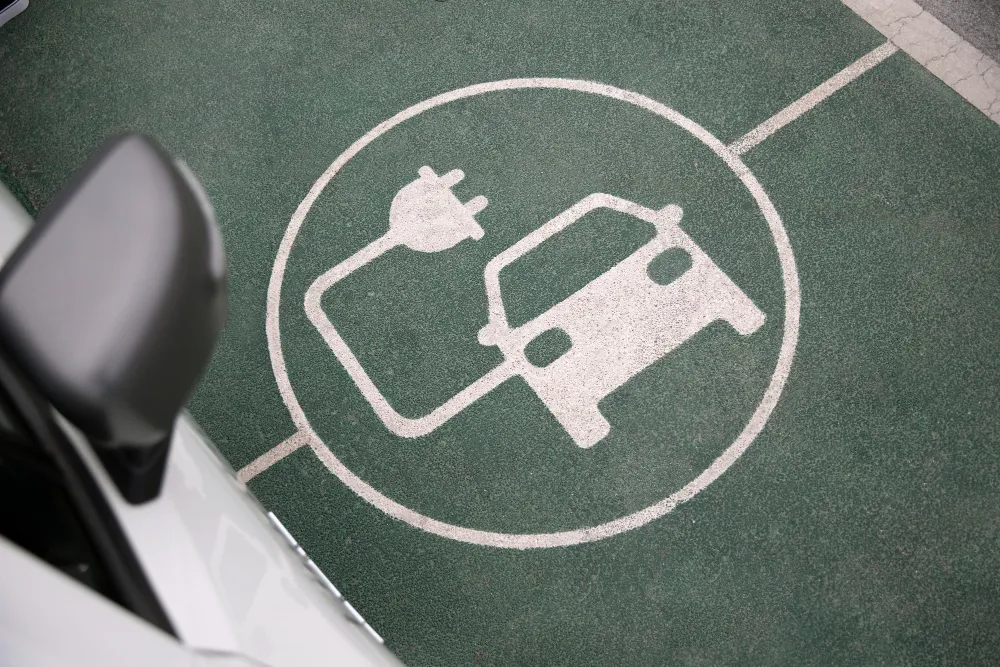Driving Green: Smart Auto Loans for Your Next EV
Discover how to get your new EV with a safe and budget-friendly loan—check out all the conditions now. See more.
How to Get Your New EV with a Great Loan
Buying an electric vehicle (EV) in the United States in 2025 isn’t just an environmentally responsible decision—it’s also a smart financial move.
The initial cost of an EV can still be a barrier. That’s why it’s so important to understand how auto loans for EVs work.

With the right options, you can drive away with a brand-new electric car without wrecking your financial health.
What’s behind the EV boom?
The growing popularity of electric vehicles in the U.S. comes down to several key factors:
• Unpredictable gas prices
• Federal and state incentives
• A growing awareness around sustainability
Automakers like Tesla, Ford, Chevrolet, Hyundai, and even startups like Rivian and Lucid are investing heavily in this market.
EVs have gone from niche products to real stars in American garages. But even with prices dropping slowly, EVs still tend to cost more than their gas-powered counterparts.
EV Financing: Where to Start?
Just like any auto loan, the process begins with a credit assessment.
Banks, credit unions, and even the automakers themselves will check your credit score, monthly income, current debts, and financial history.
If your score is above 700, you’ll likely qualify for the best rates.
But even with a score between 640 and 699, you may still be able to negotiate decent terms—especially if you can make a down payment and show stable income.
Unlike traditional car loans, many EV loans come with specific incentives.
Some lenders offer lower interest rates, cashbacks, or even bonus offers to encourage consumers to go electric.
EV Loans with Special Rates
Banks like Bank of America, Wells Fargo, and Chase already offer loan products tailored specifically for EVs. But the real leaders in this space are credit unions.
Co-ops like Navy Federal Credit Union, PenFed, and Alliant Credit Union offer very competitive terms, with rates starting as low as 4% per year in some cases.
Some carmakers also have in-house financing programs to boost EV sales. Tesla Financing, for example, offers competitive rates for the Model 3 and Model Y, with terms of up to 72 months.
Ford Credit and GM Financial also have specific EV financing lines, often tied to seasonal promotions.
Government Incentives That Help with Financing
The federal government offers a tax credit of up to $7,500 for qualifying EVs under the Inflation Reduction Act.
Even if you don’t receive that money upfront, it can help offset taxes in the following year—lightening your tax burden.
Several states also offer their own programs, including direct rebates, tax exemptions, access to HOV lanes, and free parking in certain urban areas.
These incentives can be combined with your auto loan, helping to reduce the total amount you need to borrow—or even covering your down payment.
Lease or Loan?
Many people consider leasing as an alternative to buying. Since EVs involve evolving technology and pricey batteries, they tend to depreciate differently from gas-powered vehicles.
Leasing may be a great option if you plan to switch models every 2–3 years and don’t want to worry about resale or maintenance.
On the other hand, buying with a loan is still the best option if you’re looking to build equity over time.
What to Watch for When Closing the Loan
Before you sign anything, keep an eye on these key points:
- APR (Annual Percentage Rate): This includes not just the interest rate, but also administrative fees. The lower, the better.
- Loan term: Longer terms reduce monthly payments but increase the total cost. Try to find a good balance.
- Down payment: The higher your down payment, the less you borrow. Aim for at least 10% of the car’s price.
- Prepayment penalties: Some loans charge a fee if you pay off the balance early. Avoid these if possible.
Online Tools and Loan Simulators
If you’re not sure how much you can afford, many banks and fintechs offer EV loan calculators.
Platforms like NerdWallet, Bankrate, and Credit Karma allow you to compare multiple options based on your credit profile.
Apps like Autopay, TrueCar, and even automaker websites also offer instant online pre-approval. This makes dealership negotiations easier—you’ll walk in with a financing offer already in hand.





